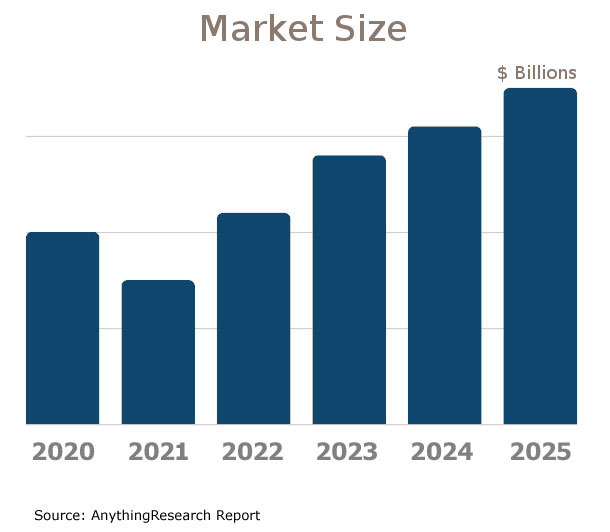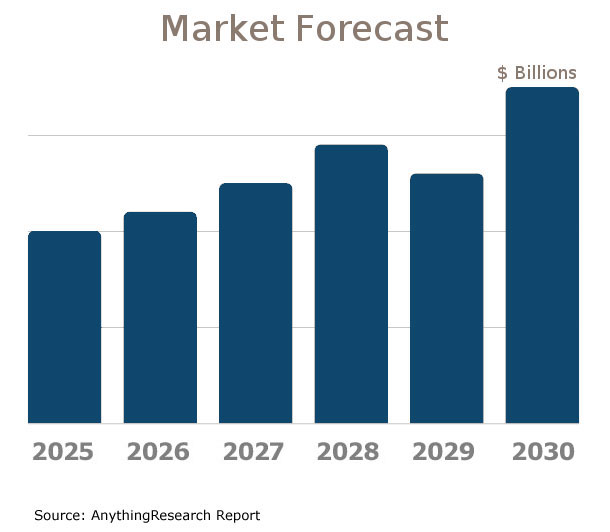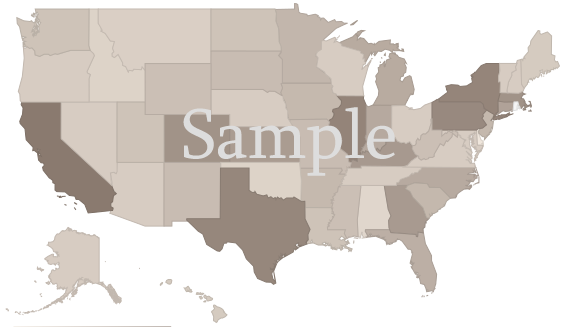| Standard Report | Premium Report | |
|---|---|---|
| Current State of the Industry |  |
 |
| Market Size (industry trends) |  |
 |
| Market Forecast (5-year projection) |  |
|
| Products/Services Breakdown |  |
|
| Revenue per State |  |
 |
| Financial Metrics |  |
 |
| Salary & Compensation Statistics |  |
 |
| Public Company Information |  |
 |
| Key Private Companies |  |
|
| Government Vendors |  |
|
| Instant Download - Available immediately upon purchase |  |
 |
Download both PDF and Excel


|
 |
 |
| Download now: |


2026 U.S. Industry Statistics & Market Forecast - Other Residential Care Facilities
Market Size & Industry Statistics
The total U.S. industry market size for Other Residential Care Facilities:
Industry statistics cover all companies in the United States, both public and private, ranging in size from small businesses to market leaders.
In addition to revenue, the industry market analysis shows information on employees, companies, and average firm size.
Investors, banks, and business executives use growth rates and industry trends to understand the market outlook and opportunity.

| Statistics | 2020 2021 2022 2023 2024 2025 | |
|---|---|---|
| Market Size (Total Sales/Revenue) |
Order at top of page | |
| Total Firms | ||
| Total Employees | ||
| Average Revenue Per Firm | ||
| Average Employees Per Firm | ||
| Average Revenue Per Employee | ||
Market Forecast
Market forecasts show the long term industry outlook and future growth trends. The following extended five-year forecast projects both short-term and long-term trends.

| Forecast / Industry Outlook | 2025 | 2026 | 2027 | 2028 | 2029 | 2030 |
|---|---|---|---|---|---|---|
| Market Forecast ($ millions) | ||||||
| Projected Industry Growth Rate (%) | ||||||
Industry Insights
Major trends affect the Other Residential Care Facilities industry include:- Aging population increasing demand for residential care
- Shift towards personalized, patient-centered care models
- Integration of technology in care facilities, including telemedicine and remote monitoring
- Increased regulation and standards for quality and safety
- Growth in mental health awareness driving demand for specialized services
- Rising healthcare costs challenging affordability and access
- Labor shortages and high turnover rates affecting service quality
- Expansion of services to include non-medical care, wellness programs, and recreational activities
- Growing competition from home care services as an alternative to facility-based care
- Impact of changing healthcare policies and government funding on operational stability
- Adoption of sustainable and eco-friendly practices in facility management
Product & Services Breakdown
Research products and services in the Other Residential Care Facilities industry generating sales. Note that products are broken into categories with different levels of classification.| Product Description | Number of Companies | Sales ($ millions) | Percent of Total Sales |
|---|---|---|---|
Industry Total |
|||
Independent Living Services |
|||
Daily Assisted Living Services Without Rehabilitation And Counseling Services (Include Children And Adults. Exclude Nursing Faci |
|||
Daily Assisted Living Services - Mental Rehabilitation Services For The Intellectually And Developmentally Disabled Or The Menta |
|||
Daily Assisted Living Services - With Counseling Services |
|||
Daily Assisted Living Services - With Counseling Services - Children |
|||
Daily Assisted Living Services - With Counseling Services - Adults |
|||
Daily Assisted Living Services - With Physical, Speech, And/Or Occupational Rehabilitation Services |
|||
Daily Assisted Living Services - With Physical, Speech, And/Or Occupational Rehabilitation Services - Children |
|||
All Other Receipts |
|||
All Other Operating Receipts |
|||
Contributions, Gifts, And Grants - Government |
|||
Contributions, Gifts, And Grants - Private |
|||
Investment Income, Including Interest And Dividends |
|||
All Other Revenue |
|||
U.S. Geographic Distribution: Revenue Statistics by State
Market Size by State ($ millions) indicates how the industry's competition is distributed throughout the country. State-level information can identify areas with higher and lower industry market share than average.
Income Statement (Average Financial Metrics)
Financial metrics provide a snapshot view of a benchmark "average" company. Key business metrics show revenue and operating costs. The data collected covers both public and private companies.| Industry Average | Percent of Sales (Industry Benchmark) |
|
|---|---|---|
| Total Revenue | Order at top of page |
|
| Operating Revenue | ||
| Cost of Goods Sold | ||
| Gross Profit | ||
Operating Expenses | ||
| Pension, profit sharing plans, stock, annuity | ||
| Repairs | ||
| Rent paid on business property | ||
| Charitable Contributions | ||
| Depletion | ||
| Domestic production activities deduction | ||
| Advertising | ||
| Compensation of officers | ||
| Salaries and wages | ||
| Employee benefit programs | ||
| Taxes and Licenses | ||
| Bad Debts | ||
| Depreciation | ||
| Amortization | ||
| Other Operating Expenses | ||
| Total Operating Expenses | ||
| Operating Income | ||
| Non-Operating Income | ||
| EBIT (Earnings Before Interest and Taxes) | ||
| Interest Expense | ||
| Earnings Before Taxes | ||
| Income Tax | ||
| Net Profit Net Income | ||
Financial Ratio Analysis
Financial ratio information can be used to benchmark how a Other Residential Care Facilities company compares to its peers. Accounting statistics are calculated from the industry-average for income statements and balance sheets.| Profitability & Valuation Ratios | Industry Average |
|---|---|
| Company valuation can be measured based on the firm's own performance, as well as in comparison against its industry competitors. These metrics show how the average company in the Other Residential Care Facilities industry is performing. | |
| Profit Margin Gross Profit Margin, Operating Profit Margin, and Net Profit Margin. Show company earnings relative to revenues. |
|
| Return on Equity (ROE) Return on Equity (ROE) is net income as a percentage of shareholders' equity. Shareholders' Equity is defined as the company's total assets minus total liabilities. ROE shows how much profits a company generates with the money shareholders invested (or with retained earnings). |
|
| Return on Assets (ROA) Return on Assets (ROA) is net income relative to total assets. The market research on Other Residential Care Facilities measures how efficiently the company leverages its assets to generate profit. ROA is calculated as Net Income divided by Total Assets. |
|
| Liquidity Ratios | Industry Average |
|---|---|
| Bankers and suppliers use liquidity to determine creditworthiness and identify potential threats to a company's financial viability. | |
| Current Ratio Measures a firm's ability to pay its debts over the next 12 months. |
|
| Quick Ratio (Acid Test) Calculates liquid assets relative to liabilities, excluding inventories. |
|
| Efficiency Ratios - Key Performance Indicators | Industry Average |
|---|---|
| Measure how quickly products and services sell, and effectively collections policies are implemented. | |
| Receivables Turnover Ratio If this number is low in your business when compared to the industry average in the research report, it may mean your payment terms are too lenient or that you are not doing a good enough job on collections. |
|
| Average Collection Period Based on the Receivables Turnover, this estimates the collection period in days. Calculated as 365 divided by the Receivables Turnover |
|
| Inventory Turnover A low turnover rate may point to overstocking, obsolescence, or deficiencies in the product line or marketing effort. |
|
| Fixed-Asset Turnover Generally, higher is better, since it indicates the business has less money tied up in fixed assets for each dollar of sales revenue. |
|
Compensation & Salary Surveys for Employees
Compensation statistics provides an accurate assessment of industry-specific jobs and national salary averages. This information can be used to identify which positions are most common, and high, low, and average annual wages.| Title | Percent of Workforce | Bottom Quartile | Average (Median) Salary | Upper Quartile |
|---|---|---|---|---|
| Management Occupations | 7% | Order at top of page |
||
| Chief Executives | 0% | |||
| General and Operations Managers | 2% | |||
| Community and Social Service Occupations | 24% | |||
| Counselors, Social Workers, and Other Community and Social Service Specialists | 24% | |||
| Counselors | 7% | |||
| Social Workers | 8% | |||
| Child, Family, and School Social Workers | 6% | |||
| Miscellaneous Community and Social Service Specialists | 9% | |||
| Social and Human Service Assistants | 8% | |||
| Healthcare Support Occupations | 29% | |||
| Home Health and Personal Care Aides; and Nursing Assistants, Orderlies, and Psychiatric Aides | 29% | |||
| Home Health and Personal Care Aides | 26% | |||
| Personal Care and Service Occupations | 16% | |||
| Other Personal Care and Service Workers | 15% | |||
| Childcare Workers | 8% | |||
| Childcare Workers | 8% | |||
| Residential Advisors | 6% | |||
| Residential Advisors | 6% | |||
| Office and Administrative Support Occupations | 6% | |||
Other Residential Care Facilities Competitor Landscape & Key Companies [PREMIUM]
The most influential companies in the Other Residential Care Facilities industry and adjacent industries either have large market share or are developing new business models and methods that could disrupt the status quo. We look at leading and emerging companies in the Other Residential Care Facilities industry and adjacent sectors:| Market Leaders: Direct Competitors Companies with the largest market share, focused in this industry |
Market leaders: Diversified Competitors Largest companies that have diversified operations in this and other industries |
| Innovators: Direct Competitors Innovative, Emerging, and Disruptive Companies that may influence the future direction of the industry. |
Innovators: Diversified Competitors Innovators and Disruptors in adjacent industries that may also affect the Other Residential Care Facilities industry. |
Latest Industry News
- New rules could stop foster care group homes from opening in west, northwest Dayton - Dayton has far more foster care group homes than any other community in the state of Ohio, but new proposed municipal zoning regulations would limit how many homes can operate in every geography of the city. (07/14/2025)
- Graciously Broken Ministries in Longview opens transition center - Graciously Broken Ministries has unveiled its newest facility in Longview to help women get their lives back on track as they recover from addictions or other challenges. (07/14/2025)
- Adult Care Homes expands senior living in Hillsborough - “The biggest difference with the adult family care home and other assisted living facilities and residential living facilities is that the provider is required to live in the home,” said Delince. (07/12/2025)
- Child Victims Act: 7 lawsuits claim sex abuse at JCCA facilities in Pleasantville - The case alleges that myriad JCCA staff members in Pleasantville, all mandatory reporters, failed the plaintiffs when they were children in need. (07/09/2025)
- Survivors File Lawsuits Over Alleged Sexual Abuse At Westchester Youth Treatment Centers - Seven people who say they were sexually abused as children at two Westchester residential treatment centers have filed lawsuits against the organizations behind the facilities. The lawsuits, announced Monday, (07/09/2025)
- APS Environmental Expands into Granite Bay with Flexible Dumpster Rentals for Efficient Waste Management - APS Environmental, a well-known service provider in the Greater Sacramento area, has announced that it is now offering dumpster rental services in Northern California. This new service is geared towards helping residential customers manage waste efficiently, (07/08/2025)
- Property could become residential children's home creating six jobs - If consent is given, the residential children’s home will be licensed by Ofsted and care for no more than three children and/or young people. Agincare is a family-owned, independent care provider of nationwide residential care and nursing homes, (07/08/2025)
- Florence residential care facility owner responds to allegations against business - The owner of a Florence residential care facility is responding to allegations against her business saying "they're still flourishing and welcoming new resident (07/03/2025)
- Rutgers Center for Recovery & Wellbeing Begins Outpatient Services in Plainfield, Bringing Compassionate Care and Community Healing - Since April 2025, the Rutgers Center for Recovery & Wellbeing, located in the heart of Plainfield, has been steadily offering outpatient services to adults seeking recovery from substance use and co-occurring behavioral health conditions. (07/01/2025)
- Santa Clara County Opens New Residential Mental Health Facility - SFGATE - A new residential treatment facility in Santa Clara County will provide people with a safe place to heal and recover. County officials announced the opening of 1072-1082 Vermont St. in San Jose ... (06/16/2025)




